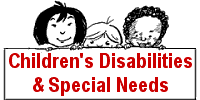What
Should We Talk About?
Building Your Child's Conversation Skills
Three easy steps to help your child learn good conversation skills.
By Gary Kosman and Grace Chiu, authors of Bonding
While Learning
The more your child participates in conversations, the easier of a time
he or she will have learning to use the English language. Here are some
activities you can use to build your childs conversation skills. Your
conversations may be about any topic, and you can have them anywhere in
the car, while waiting in line, while eating together, while taking a
bath, or while getting ready for bed.
Talk about activities and topics that interest your child.
Building your childs conversation skills should naturally develop from
meaningful conversations with him. By allowing your child to share about
things he is familiar and comfortable with, you allow him to talk with
more confidence and ease.
Here are some topics or areas of interest that you and your child can
talk and share about:
- Favorite games
- What happened in play group today
- What he ate for lunch today
- Favorite music artists
- Favorite songs What he did at school today
- Favorite cartoon/television characters
- Favorite sports
- Pictures of family and friends Favorite movies
- Favorite books
- What happened at the park today
You can begin conversations around these topics by saying, "Tell
me about something you did at the park today" or "Can you tell
me more about what you did with your brother today?" You could also
ask, "Have I ever told you how much I love soccer? No? Well,..."
When you're done talking, you can ask your child to tell you about his
favorite sports or about something or somebody he loves.
Invite your child to ask you questions.
Remember, conversation skills are not just about speaking, but also listening.
Invite your child to learn about you by asking you questions; by answering
his questions, you give him an opportunity to carefully listen, understand
and respond to what you are sharing.
Address your childs grammatical errors by modeling correct grammar.
Directly correcting grammatical errors can often backfire on you. Your
child may get discouraged or refuse to talk with you.
The best way to help your child is to restate what your child has said
using correct grammar, modeling the correct grammatical form. This approach
allows you to enter a non-threatening dialogue with your child while you
model the correct form of grammar. Also, do not repeat your childs incorrect
grammar as this will only confuse your child; only restate the correct
form.
Gary Kosman and Grace Chiu are the
authors of Bonding
While Learning: Activities to Grow Your Relationship While Preparing for
Reading Success, which provides practical activities to share with toddlers
and preschoolers to encourage speech, early reading, and interactive communication.
This activity is copyright protected; it is reprinted on our site with permission
of the author. See reviews of recommended speech books. |

